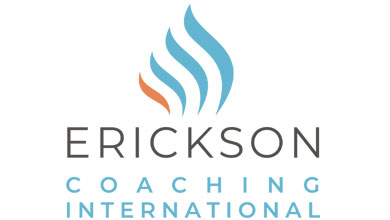ATD Blog
5 Essential Standards Every Coach
Your commitment to these core values will determine the success and authenticity of your coaching business.
Thu Nov 07 2024

Ever wonder what distinguishes the most well-respected coaches? What really counts is their commitment to professional standards and ethical principles, that extend beyond their skills and methods. These values are the foundation of honesty, respect, and trust in coaching; they go beyond simply upholding credibility. Let’s look at how a coach can ensure that they apply professionalism to every session and that they always maintain ethics.
1. Responsibility to Clients: Confidentiality as the Cornerstone of Trust
The International Coaching Federation (ICF) has identified confidentiality as a fundamental component of coaching and believes it is necessary to establish a secure and encouraging environment for clients. According to the ICF Code of Ethics, coaches are obligated to keep all client information strictly confidential, unless there is a legal requirement for disclosure.
Clients need to have confidence in the privacy of their personal and professional information. Establishing explicit confidentiality agreements at the beginning of the coaching partnership is essential to upholding this standard. These agreements must specify what data will be kept confidential as well as any situations when confidentiality may be violated. By adhering to these agreements, coaches protect the client’s privacy and build a foundation of trust that is essential for effective coaching.
2. Responsibility to Practice and Performance: Competence and Continuous Development
To be considered competent in the coaching field, you must be committed to ongoing learning and professional development. Ethical coaches need to be up to date on the most recent coaching methods, research, and methodologies to give their clients the best possible care.
The ICF states that coaches should regularly participate in professional development activities, such as going to workshops, obtaining CCEU’s (Continuing Coach Education units), and keeping up with industry advancements. Your ability to provide professional, high-quality coaching that meets professional standards is ensured by your dedication to continuous education, which will benefit clients and increase your credibility as a coach.
3. Responsibility to Professionalism: Establishing Clear Boundaries
Maintaining appropriate boundaries is essential for upholding professionalism in coaching. Boundaries establish the limits of the working relationship and guarantee that the client and coach are aware of their specific responsibilities and roles.
Clear boundaries help prevent conflicts of interest and maintain the integrity of the coaching relationship. Boundaries, for instance, can relate to the nature of the relationship outside of coaching sessions, the frequency and duration of sessions, and the scope of coaching. You can create a structured and ethical coaching environment when you establish these boundaries and communicate in a clear and consistent manner.
4. Responsibility to Society: Ethical Conduct and Social Impact
Beyond the coach-client dynamic, ethical behavior also considers the coach’s larger social impact. Coaches are encouraged by the ICF to embrace the idea of "doing good" as opposed to only "avoiding bad." This entails being aware of the ways in which your activities as a coach advance the common good.
In every decision and activity, coaches are also obliged to uphold justice and equality and refrain from prejudice. This entails honoring cultural customs and making sure your coaching practice adheres to principles that encourage inclusivity and dignity for every person.
5. Ethical Standards: Navigating Conflicts of Interest
Effectively handling any conflicts of interest is an essential component of ethical coaching. A conflict of interest occurs when a coach’s financial or personal interests might sway their decisions or actions in the workplace. Maintaining clients’ respect and trust requires recognizing these situations and taking appropriate action.
To avoid conflicts of interest, coaches should address any such conflicts as soon as they surface and seek to settle them in a way that puts the client’s interests first. Maintaining objectivity, goal-oriented, and solution-focused coaching may entail putting the client in contact with another coach or establishing firm limits.
The Pillars of Ethical Coaching
For a coach to uphold integrity, respect, and trust in their work, they must understand and follow professional standards and ethical guidelines. Confidentiality, competencies, boundaries, moral behavior, and managing conflicts of interest are key components of an ethical and productive coaching environment.
As you reflect on your coaching practice, consider how well you are upholding these crucial standards. What steps can you take to further enhance your ethical competence and professionalism? Your commitment to these core values will determine the success and authenticity of your coaching business.

